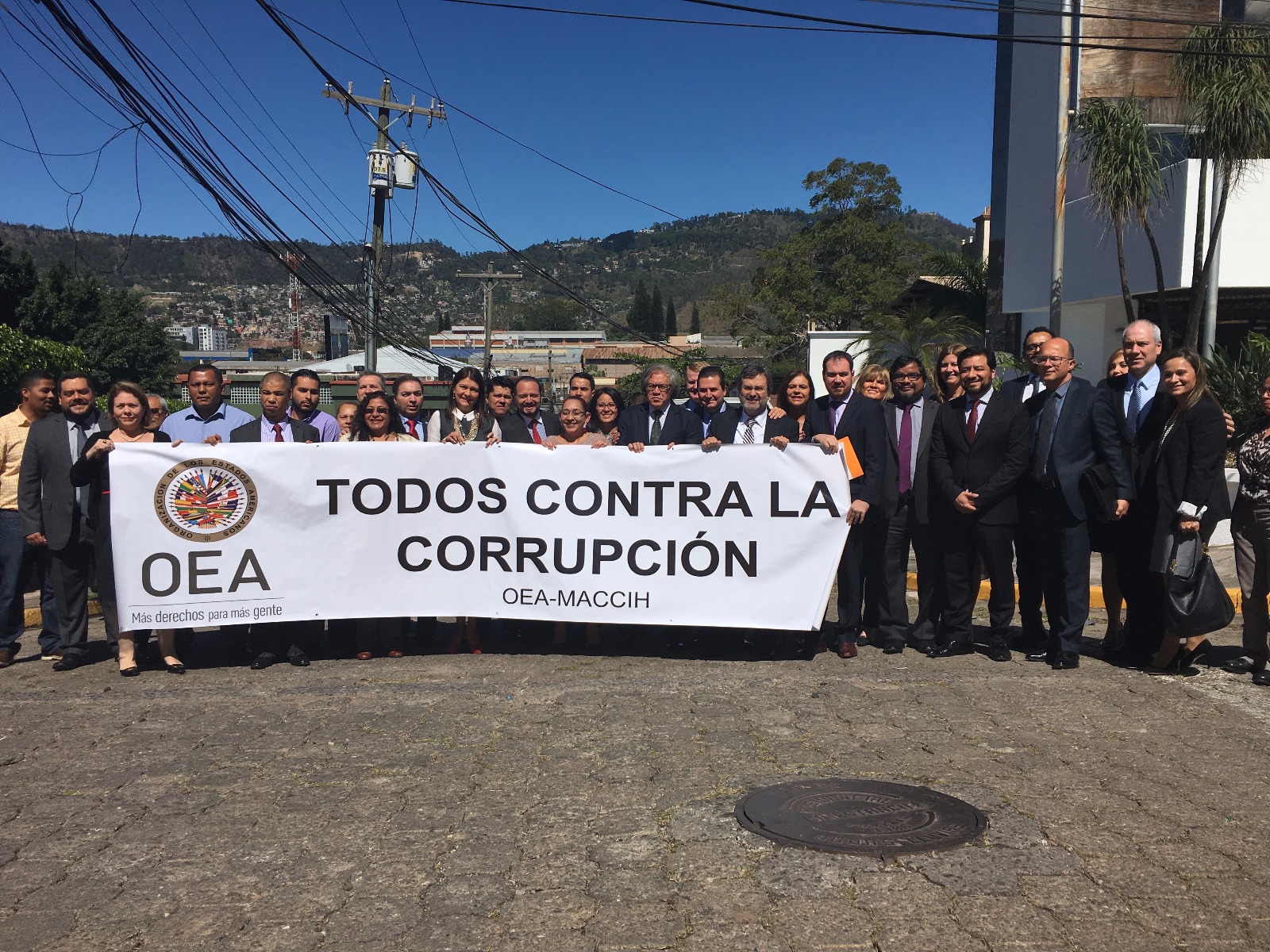
On November 28, 2021, Hondurans will head to the polls to elect their next president, 128 deputies to the National Congress, 20 deputies to the Central American Parliament (PARLACEN), and 298 mayors. As the country prepares to hold general elections amid the challenges of a global pandemic, corruption casts an even larger shadow over the proceedings. Corruption at the highest levels and weak governance threaten the country’s stability and fuel democratic backsliding, violent crime, and irregular migration. With government institutions weakened, civil society will play a crucial role in holding the government accountable during and after this election.
Connections between high level government officials and candidates and corruption is pervasive in Honduras, undermining citizen trust in their government. In March of this year, Juan Antonio Hernández, the brother of President Juan Orlando Hernández, was sentenced to life in prison in the United States on drug-trafficking charges. Juan Antonio Hernández, a former legislator himself, was convicted of smuggling over 185 tons of cocaine to the Unites States. The president was implicated throughout the trial, and while reading the sentence, the presiding judge stated, “here, the trafficking was indeed state-sponsored.” The candidates running to replace the president in November’s election also face allegations of or ties to corruption.
Yani Rosenthal, son of a former vice president, was sentenced to three years in a U.S. prison in 2017 for laundering drug money. Nasry Asfura, mayor of Tegucigalpa, is under investigation for embezzling over $1 million in city funds. Xiomara Castro, wife of former President Manuel Zelaya, faces accusations that her husband accepted $500,000 in bribes from drug traffickers while he was president. These candidates show that corruption permeates even the top of Honduran politics.
In January 2020, the government of Honduras chose not to renew the mandate of the Organization for American States’ (OAS) Mission to Support the Fight against Corruption and Impunity (MACCIH), diminishing the judicial sector’s ability to confirm corruption cases. In June of 2020, the Honduran congress passed a new criminal code that lowers the sentences for corruption and drug trafficking charges, criminalizes protests, and restricts freedom of speech. Human rights organizations have criticized these changes as promoting impunity for corruption and impeding their work. In a country that is already one of the most dangerous in the world for activists and human rights defenders, these changes further restrict basic freedoms and threaten to criminalize individuals that work to improve their government.
With the closure of MACCIH and the government stepping away from its duty to enforce anti-corruption standards, Honduran civil society must fill in the gap to fight against fraudulent activity, by promoting transparency, access to information, and accountability among government officials. The upcoming election provides an opportunity to help CSOs make the costs of corruption more visible to the public. As Honduras recovers from the pandemic and two devastating hurricanes that struck last year, the country needs effective, accountable leadership more than ever.
Since the late 1990s, IRI has been working to promote democratic and citizen-centered governance in Honduras, including the Institute’s current focus on empowering CSOs to fight corruption. IRI’s programming is key to more transparent policies and initiatives–as well as accessibility of public information–from new government officials. CSOs representing a wider cross-section of citizens in Honduras need better support and more coordination between each other and with international organizations to advocate for the reversal of laws and policies that facilitate corruption and to promote greater oversight and accountability. Given the increasingly adverse political environment, bolstering this work is critical to confronting corruption in Honduras. By strengthening CSO capabilities and building their network, IRI hopes to develop a more resilient and efficient civil society that promotes good governance among public officials.
Top